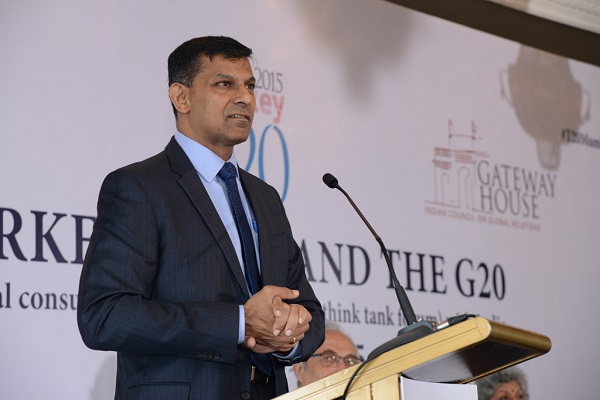
KOLKATA: Reserve Bank of India Governor Raghuram Rajan said the International Monetary Fund should trim down its bureaucracy and act quickly in sanctioning financial assistance in the form of liquidity during financial crisis as it is the backstop for countries in trouble.
Most critical aspect of any crisis is liquidity that countries need for which they depend on IMF, the global multilateral institution which is tasked with the idea of guarding global monetary stability.
“We have to see what we need to do to take the backstop in to a fast acting source of liquidity in a very short run. And how we deal with situations where a liquidity problem turns into a solvency problem,” Rajan said at IMF last week during the spring meet.
“These are not the insurmountable problems it just seems to me that we have to spend more time thinking about them because liquidity needs our fast and certainly faster than the time to negotiate a fund program,” he said.
Rajan suggested that IMF should continue to try to persuade countries to fill gaps in the global safety net where they are and when they occur.
Emerging economies such as India are investing in long duration infrastructure projects that are largely being funded by external borrowing. They need protection from sudden outflow of “short term impatient money whenever sentiment towards the country changes, due to political developments as well as externalities.
To guard against liquidity troubles emanating from foreign currency outflows, building of foreign currency reserves becomes important. “When the money flows out people have an expectation that you have enough to pay even if global capital markets have stopped functioning for you. And that helps you protect the value of your currency,” the RBI governor said. “If people know you have enough reserves, you have enough to protect your currency the exit becomes more orderly and sometimes it doesn’t happen.”
RBI has $360 billion at its coffers – enough to pay imports bill for about 10 months, rose from $310 billion two years back. China has seen around $1 trillion outflow during the same time, forcing People’s Bank of China to dig into the country’s reserves to support yuan.
China has subsequently devalued its currency to make exports more competitive and support its economy.
“When the currency depreciates a lot we start getting higher rates of inflation. Emerging markets aren’t too confident about letting their currency depreciate a lot and would like to ensure that they have some way of managing that risk,” Rajan pointed out.